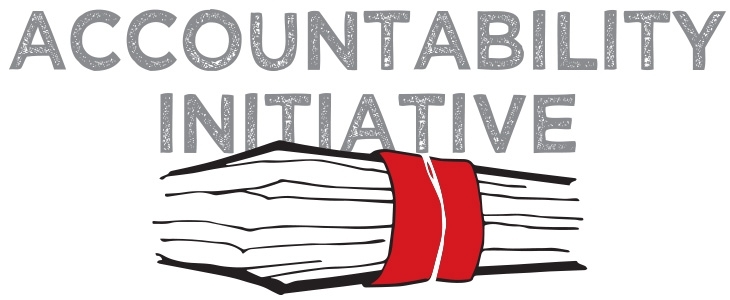
Debate on the UID: Share your views!
20 September 2010
Accountability Intitative invites your views on the UID, on the brink of its first roll out in rural Maharashtra. We welcome comments on any aspect of the UID– its’ implementation, design, flaws, potential, constitutionality; as well as any relevant links or media you may wish to share.

The launch of the UID has led to a flurry of debate amongst policy-makers, legal experts and civil society at large; often surfacing in polarizing editorials and sometimes in press conferences calling for its’ halt. Today’s conference at the Press Club in Delhi was held by a coalition of civil society groups opposed to the UID, organized under the banner Campaign for No UID. The coalition asserts the project has been initiated without any prelude: “there is no project document; there is no feasibility study; there has been no cost-benefit analysis; there are serious concerns about data and identity theft… [the project] has proceeded so far without any legal authorization, on the basis of an executive order, that could change the status of the people in this country.”
Aadhaar will go beyond just providing “a 16-digit identification number for every Indian”. and is pitched to handle projects as diverse as a national-highway toll-collection system, a technology backbone for the forthcoming Goods and Services Tax (GST) and reform of the vast public distribution system(PDS) for subsidised food.
Nandan Nilekani, chief of Aadhaar, says the UID will “provide an identity to those who need it most”, and answers comprehensive questions in this interview on the benefits of the UID. However, others such as Jean Dreze, economist and NAC member, have claimed Aadhaar is “a national security project in the garb of a social policy initiative”. Inevitably there are concerns over privacy and data protection, with calls for a privacy Bill to counter the supposed legal and constitutional vacuum in which Aadhaar is currently placed, and predictably at least one writer has evoked Orwell. However, others claim the security provided to 600 million poor outweighs the philosophical and intellectual concerns over privacy that are limited to sections of liberal civil society. Critics also allege that the reason why Aadhaar is selling itself to millions of poor in the country is to create a foundation of legitimacy to deflect concerns over it being misused, technologically unproven and costly, as well as to piggyback on schemes like the NREGA and the PDS. The debate extends across citizen-State relations, privacy, finances, and operations.
Also, Aadhaar will go beyond just providing “a 16-digit identification number for every Indian”. and is pitched to handle projects as diverse as a national-highway toll-collection system, a technology backbone for the forthcoming Goods and Services Tax (GST) and reform of the vast public distribution system(PDS) for subsidised food. Nilekani runs a team of 120 people with the task of assigning unique identities to 1.2 billion people. These people form a small-smart-fast-flat team that runs Aadhaar. Is this model effective, and as some say an organisation that is a precursor to tomorrow’s government?
All comments will be moderated.




